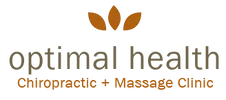Whiplash

Here at Optimal Health Chiropractic and Massage Clinic, we treat back and neck injuries caused by car accidents in Seattle, including whiplash injuries. Here are a few of the most common questions we receive from our patients and the answers.
What auto accident injuries does our chiropractor in Edmonds treat?
Our chiropractor near Shoreline, WA treats various auto-accident injuries, including whiplash, back and neck pain and bulging and herniated discs.
What is whiplash?
Whiplash is an acute injury of the neck. It strains and sprains the muscles and ligaments and misaligns the vertebrae. It causes neck stiffness, headaches and migraines and loss of range of motion of the neck. Symptoms appear slowly. Most individuals first experience pain 24 to 48 hours after the accident. In the coming days and weeks, the pain usually gets worse instead of better, resulting in a need to take time off from work and potentially lose income.
How is whiplash treated?
Whiplash is typically treated with chiropractic adjustments, heat and ice, corrective exercises and stretching and massage therapy. The first goal of treatment is to reduce pain and inflammation and stop further damage to the cervical vertebrae, muscles and ligaments. Ice and heat can reduce inflammation and increase circulation to the area, which decreases recovery time.
Chiropractic adjustments realign your cervical vertebrae, which reduces pain and inflammation and stops further damage to your neck. Corrective exercises and regular stretching helps keep your neck mobile and flexible throughout the recovery process.
Will my head and neck pain heal on its own?
Whiplash and bulging and herniated discs do not heal on their own. In fact, the pain, discomfort and loss of range of motion and strength tends to get worse with time instead of better. In the case of untreated whiplash, bone spurs tend to develop, which causes permanent disability.
Can I prevent whiplash in the event of a car accident?
Since whiplash is caused by a rapid back and forth motion that extends the neck beyond its useful range of motion, there is very little that can be done to prevent it during an auto accident. Wearing your seatbelt and properly adjusting your headrest can reduce the damage caused to your neck because they limit the distance your body can ricochet, but doing these things does not necessarily prevent musculoskeletal injuries.
Can you treat my car accident related back pain?
Our chiropractor clinic in Edmonds can diagnose and treat the source of your car accident related back pain. Car accidents place incredible stress on the vertebrae and discs in your back, which can cause them to bulge and herniate. Chiropractic adjustments, decompression and massage therapy are effective at treating bulging and herniated discs and reducing your pain.
Who will cover the costs of my Auto-Accident treatments?
If the auto-accident was not your fault, the other driver’s insurance should pay for your medical expenses. If you have full-coverage car insurance and the accident was your fault, your insurance company should pay your medical expenses.
What Happens If I Don't Seek Treatment for Whiplash?
Although minor symptoms of whiplash usually recede within four to six weeks, most symptoms are not minor due to powerful momentum of forces affecting the neck, back and spine called hyperflexion and hyperextension of muscles and ligaments. These two forces occur when your head is suddenly whipped backwards and then forwards unexpectedly in a car accident. Long-term health effects of untreated whiplash include chronic migraines, debilitating pain in the back and neck, inability to concentrate and overwhelming fatigue.
If I Feel Fine After Being Involved in a Car Accident, Should I Still See a Chiropractor?
Yes! It is critical that you seek chiropractic care after an auto accident involving hyperflexion and hyperextension of your neck and upper back muscles. The effects of soft tissue trauma may not emerge for several days or even weeks later as the shock of the accident gradually subsides and your body ceases releasing endorphins that once helped minimize pain and inflammation naturally.
Why Does Whiplash Cause Psychological Symptoms?
Severe pain can make it difficult to concentrate, remember things and interfere with your sense of balance. Continuous sleep disruption due to whiplash pain causes daytime fatigue that naturally makes anyone feel irritable and moody. When whiplash symptoms are masked by pain medications instead of being addressed holistically by chiropractic care, depression and anxiety often occurs as the patient experiences difficulty managing pain, loss of mobility and reduced quality of life.
Can Whiplash Lead to Paralysis?
Although whiplash does not cause paralysis, a condition called central cord syndrome can make you feel like you may be developing a form of spinal paralysis. Central cord syndrome results from whiplash injury to the central region of the spinal cord located in the neck. Symptoms of CCS include tingling, numbness and shooting pains down the side of your arm or face. A cervical spine MRI is usually indicated to confirm a diagnosis of CCS.
Can I Get a Herniated Disc from Whiplash?
Whiplash injuries are not directly attributed to the development of herniated discs but you can receive a herniated disc or worsen an existing herniated disc if you are involved in medium to high-speed car accidents. Whiplash and herniated discs may also be co-occurring injuries that produce similar symptoms such as pain, weakness and numbness in the neck, chest, shoulders and arms. If the herniated disc is larger than normal, it can cause tingling and numbness in the legs and feet as well.
Will I Have to Wear a Cervical Collar While I am Being Treated for Whiplash?
Once commonly prescribed to whiplash patients to stabilize the neck and head, cervical collars have been found to actually inhibit recovery from whiplash by decreasing muscle strength. in addition, immobilizing neck muscles for extended periods may increase pain and do nothing to restore cervical spine health. Occasionally, cervical collars are still used if they help the patient sleep better at night but should not be worn except at night.
